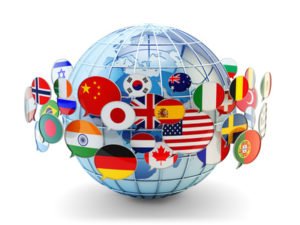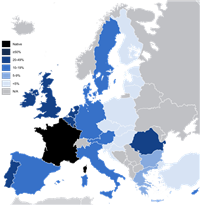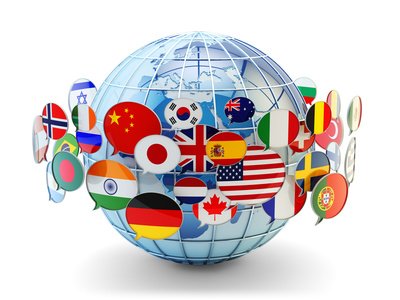 On 9 May 1950, Robert Schuman announced his plan for the creation of an organised Europe to maintain peaceful relations between Member States in the wake of the Second World War. Since then, 9 May has become the symbol of the European Union; a day to celebrate its flag, anthem, motto (“Unity in Diversity”) and single currency.
On 9 May 1950, Robert Schuman announced his plan for the creation of an organised Europe to maintain peaceful relations between Member States in the wake of the Second World War. Since then, 9 May has become the symbol of the European Union; a day to celebrate its flag, anthem, motto (“Unity in Diversity”) and single currency.
Since 1950, Europe has changed considerably, become more structured and enlarged. It currently includes 27 Member States with a population of 495 million people.
From a linguistic point of view, 23 official languages are spoken in Europe: Bulgarian, Czech, Danish, Dutch, English, Estonian, Finnish, French, German, Greek, Hungarian, Irish, Italian, Latvian, Lithuanian, Maltese, Polish, Portuguese, Romanian, Slovak, Slovene, Spanish and Swedish.
There are two main entitlements for languages with “official and working” status:
- “documents may be sent to EU institutions and a reply received in any of these languages;
- EU regulations and other legislative documents are published in the official and working languages, as is the Official Journal.”
Source: European Commission – Languages
German is the most widely spoken language within the European Union, with 100 million native speakers. This is followed by French (78 million speakers), English and Italian (around 60 million).
French is a dynamic language within the European Union. The demographic strength of French-speaking countries and France’s political influence make French the second most widely spoken language in Europe. French is also taught in many European countries as a foreign language.
Knowledge of French in the European Union

Be that as it may, English remains the most used language within the E.U. It is the first foreign language for 35% of E.U. citizens.
The European Union does, however, promote linguistic diversity. It recognises the dialects spoken by 50 million people which contribute to Europe’s colourful heritage.
Contact CG Traduction & Interprétation, the specialist in European languages and dialects (Gallo, Breton, Welsh, Basque, etc.). We will meet all your translation needs!


